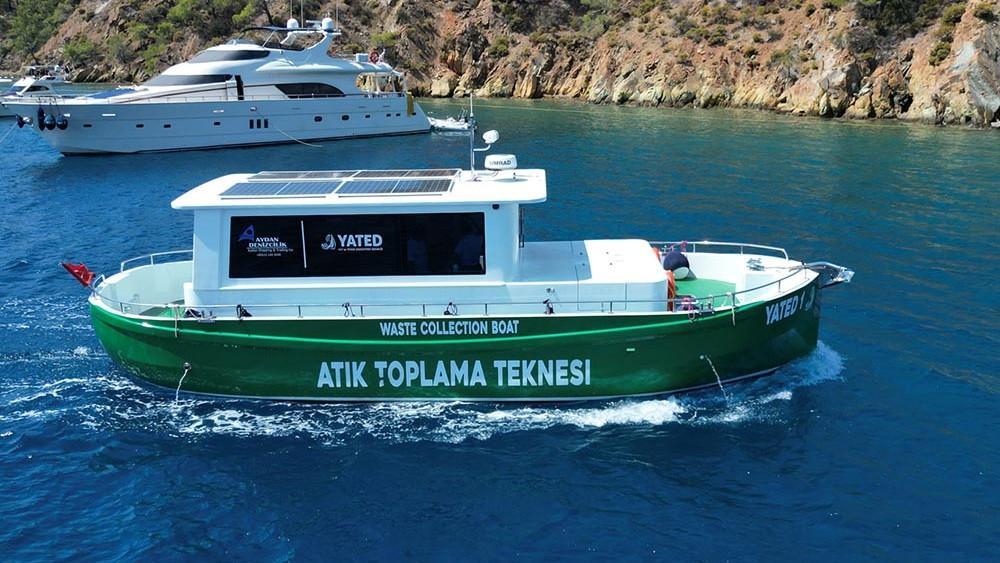
A growing flotilla of vessels crossing the bustling routes of Muğla’s pristine bays is casting a shadow over its turquoise waters, as their discharge of liquid waste imperils delicate ecosystems, sparking fervent calls for sustainable solutions to preserve this Turkish coastal treasure.
The southwestern province is home to nearly 5,000 boats alone, with an estimated 600 tons of liquid waste being generated daily. Yet only a fraction is collected by specialized waste vessels, with some luxury yachts opting to discharge their waste directly into the sea rather than pay collection fees of 3,000-5,000 Turkish Liras ($75-$120).
“These pollutants wash up along our coasts. In Göcek Harbor, it’s now almost impossible to swim,” said Yacht and Boat Industry Association Director Kadir Karakaya. “Foreign and local boat owners alike dump their waste into the sea. If no action is taken, marine tourism will be severely affected.”
High marine fees and limited dock capacity push many vessels to anchor offshore, far from waste reception facilities. While waste collection boats operate on demand, their numbers and capacity remain insufficient.
“Across Türkiye, there are only 27 solid and liquid waste collection vessels, most with capacities of just 3 to 10 tons,” Karakaya explained. “The volume generated far exceeds what can be collected. Without a united effort, both environmental health and sustainable tourism are at risk.”
Karakaya noted that pollution is already visible. “Two weeks ago, I saw the blue waters turning brown. In Göcek Bay, people try to swim outside the gulf. Tourists may start preferring destinations like Greece, Croatia or Italy.”
In response to the gap, his association invested 300,000 euros (around $347,000) in a vessel capable of collecting 20 tons of liquid waste and 500 liters of bilge water.
Operating in the Göcek region, it charged roughly 1,250 liras per ton. Revenue from the first year will help fund additional waste boats.
Government inspections have intensified. In the first half of the year, the Environment, Urbanization and Climate Change Ministry conducted over 32,670 inspections, fining 3,167 facilities and 56 vessels a total of 2.65 billion liras.
Of this, 939 million liras were levied against marine vessels. Authorities say revenues from penalties will be used to protect the environment.